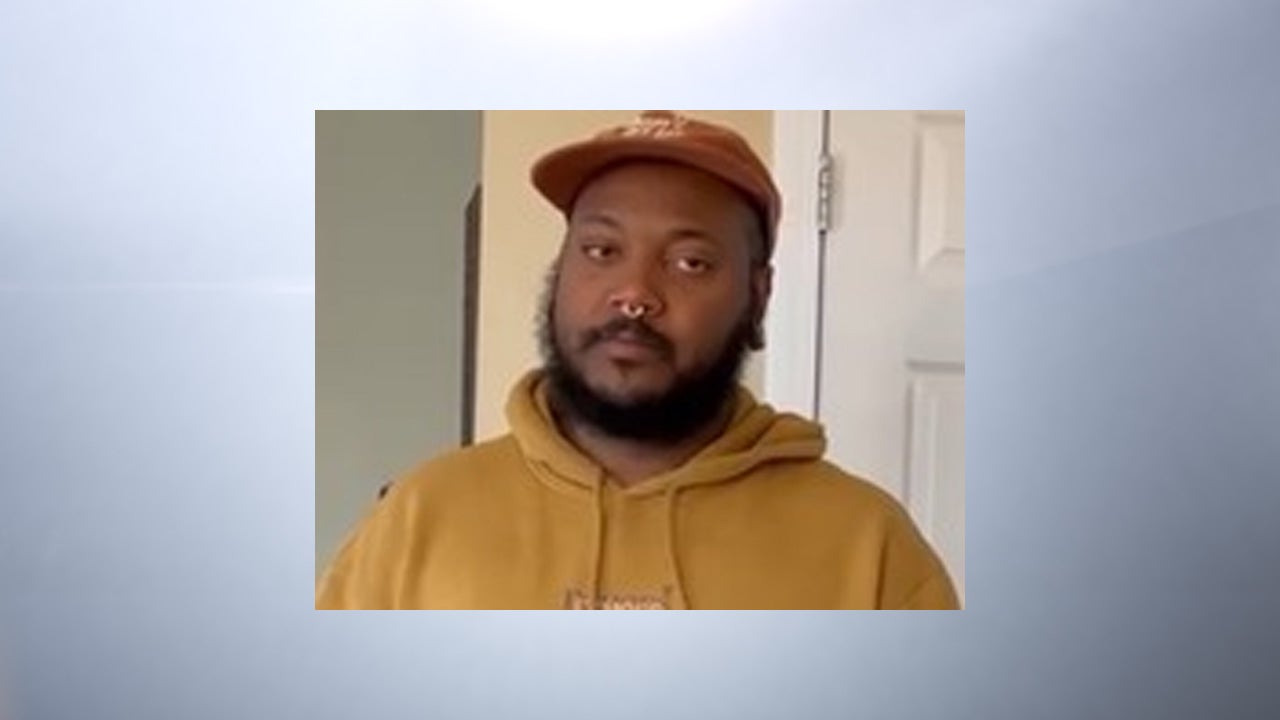Indiana
Indiana Silver Alert: 27-year-old man missing from Avon

AVON, Ind. (WISH) — The Hendricks County Sheriff’s Office was investigating the disappearance of a 27-year-old man from Avon.
Bryson Ledsinger was described as a Black man, 5 feet 9 inches tall, 230 lbs, with black hair and brown eyes.
He was last seen wearing a black Bob Marley shirt with blue jeans, and was driving a gray/silver 2007 Toyota Corolla with Indiana personalized license place SCVENGR.
Ledsinger was last seen in Avon, about 13 miles west of downtown Indianapolis, on Sunday. He was believed to be in extreme danger and may require medical attention.
Anyone with information on Ledsinger was asked to contact the Hendricks County Sheriff’s Office at 317-745-6269 or call 911.

Indiana
First Tier 2 study for Mid-States Corridor project to begin – Inside INdiana Business

Loading audio file, please wait.
The team behind the Mid-States Corridor Project in southern Indiana has received approval from the Indiana Department of Transportation to proceed with its first Tier 2 study.
The study will be the first of several to determine the alignment and access plan for the new highway, which is being designed to connect I-64 to I-69 through Spencer, Dubois and Martin counties.
The first Tier 2 study will focus on what’s known as Section of Independent Utility 2, or SIU 2, which extends from Interstate 64 near Huntingburg and Jasper to State Road 56 at Haysville in Dubois County.
The goal of the study is to “evaluate more site-specific impacts to determine the specific preferred location and right-of-way needs” for the highway. The study of SIU 2 is expected to take about three years to complete.
Early activity of the study will include survey work and data analysis, the project team said.
Mid-States Corridor rolls forward with business sector support, community blowback
In March 2023, the project team identified a refined preferred route alternative, known as Alternative P, which would run 54 from the I-64/U.S. 231 interchange up to I-69 near Odon.
The Final Environmental Impact Statement (FEIS) issued last September said four new alignment SIUs will each require a separate Tier 2 analysis and are expected to take place sequentially, rather than concurrently.
“Securing and programming funding to complete construction of each SIU may take nine to 15 years in several distinct phases of three to five years,” the FEIS said.
The Tier 2 studies for the remaining SIUs have not been scheduled.
Story Continues Below
Indiana
Parents can safely surrender babies up to 30 days old due to Indiana’s safe haven law

The deaths of two abandoned babies left out in the elements became foundational in establishing Indiana’s Safe Haven Law.
After the discovery of these babies, the state’s opinion on parents who couldn’t care for their babies shifted, which is why there are safe haven laws today.
Here’s what to know.
Baby Ephraim was a baby found dead outside a hospital emergency room on Jan. 26, 2000. He died of hypothermia.
While the parents clearly wanted their baby to receive the care he needed, it was determined that the fear of prosecution is what deterred the parents from handing their child directly to a nurse inside the hospital.
Indiana had been mulling legislation like many states across the country, but Ephraim’s death would solidify their decision and on March 24, 2000, then-governor Frank O’Bannon signed the Indiana law.
Although the law didn’t exist to help Ephraim, it should have saved Baby Jacob.
Just a year later, on Dec. 8, 2001, Jacob was found dead in a trashcan by workers outside a laundromat. He was wrapped in a sheet, several shopping bags and a trash bag. He still had his umbilical cord attached to his tiny body.
At this point, Indiana’s Safe Haven law had been enacted for 18 months, but few people in Indianapolis knew. Jacob’s death would change that by prompting a widespread awareness campaign.
Read the full story: 2 babies found dead outside were buried in unmarked graves. How they changed Indiana law
Indiana’s Safe Haven Law allows for the anonymous surrender of an infant 30 days old or younger without prosecution. Infants may be surrendered at fire departments, hospitals and emergency medical services stations. So long as there are no signs of intentional abuse or neglect, the person surrendering the child is not required to provide any information.
Developed by Monica Kelsey, who learned as an adult that she had been abandoned at a hospital after birth, safe haven baby boxes are devices installed in an exterior wall of fire stations or hospitals that allow for the anonymous surrender of an infant. The first box was installed at a fire station in Woodburn, Indiana, near Fort Wayne, in 2016.
The device is a two-way box, with a door inside and outside the building. The boxes are temperature controlled and programmed with several silent alarms to alert first responders. A silent alarm is triggered when the outside door is opened, when the baby is placed in the bassinet and again when the door is closed and automatically locked.
First responders retrieve the baby from inside the building and transport the infant to an area hospital for medical evaluation. The Department of Child Services then assumes custody of the child.
Do people actually use safe haven baby boxes?
Yes. In 2017 and 2018, babies were surrendered in a box at a Michigan City, Indiana, fire station. Delays in construction meant a box was still not ready when a baby was surrendered at Decatur Township Fire Department on Indianapolis’ southwest side in 2018. The infant was found healthy.
In October of 2023, IndyStar reported that a baby box in Carmel was one of the most used in the country.
According to Kevin Albin from Safe Haven Baby Boxes, 2 babies have been surrendered via baby boxes in the state this year, with many more being surrendered directly to personnel using the national crisis hotline.
Previously: More infants are left in this Indiana baby box than anywhere else in the country
In Indiana, parents can surrender babies that are up to 30 days old either face to face or via baby boxes without facing prosecution.
You can check Safe Haven Baby Box’s website to find the nearest baby box.
Katie Wiseman is a trending news intern at IndyStar. Contact her at klwiseman@gannett.com. Follow her on Twitter @itskatiewiseman.
Indiana
Oscar Tshiebwe showed additional skill during summer league, but has same limitations for Indiana Pacers

LAS VEGAS — Oscar Tshiebwe went into summer league hoping to show more of anything on the hardwood. The big man has displayed time and time again that he’s an excellent rebounder, but he hoped to exhibit additional abilities during the summer sessions.
The Kentucky product was named to the All-G League First Team last year because of his productivity. He dominated the glass and could finish around the rim, which was a large source of success for the Indiana Mad Ants.
This summer was about additional skills. “Actually, his passing. The game has slowed down for him a lot,” Pacers head coach Jannero Pargo said of what looks better for Tshiebwe in his second season. “He’s able to catch the ball and be comfortable and not be rattled and rushed. And he’s making plays from the high post position.”
Tshiebwe showed those skills quickly. His high-low passing game with Jarace Walker was a quality connection in the first game as the second-year big man dished out four assists. He made plays in the high post, as expected by his coach.
Throughout the summer tune ups, that general range was shown. Tshiebwe hit a jumper in more than one outing and drove in for a finish from the perimeter in the final game. He did show more skills in general than during his rookie season.
“We’ve been working on those a lot.” Tshiebwe said of his high-low passing. “If you want to be great, you’ve got to learn how to make good passes. If you see someone helping, you’ve got to make good passes.”
The young big man has been working with assistant coach Jim Boylen on his passing and reads, and Tshiebwe shared that Boylen notices his improvement from year to year just by looking at the tape. During his rookie season summer league, Tshiebwe had four assists in total. He averaged 1.8 per game this season.
He also shot 61% from the field, a fine-enough number. His putbacks were effective — as they usually are — which is a consequence of his dominant rebounding skill. And that remained, which is vital to Tshiebwe’s success.
He had 19 rebounds in his opening performance against Brooklyn, and he was actually unhappy with his outing on the glass that day. He thought that he could have done better. As usual, when the matchup was right, the Kentucky product dominated the boards.
But the matchups didn’t always dictate that Tshiebwe could be on the floor or dominate the glass. He had 24 rebounds total after the first game — just six per outing. His subpar defense means that there are fewer rebounding opportunities when he’s out there, and the young center has fewer ball skills than Enrique Freeman. That meant Tshiebwe didn’t close games much, which limited his total numbers. He’s limited by his poor defense as well as his lack of handle and jump shot.
Still, in situations where the Congolese big man could live on the floor, he showed off new stuff. He hit the glass, made passes, and finished plays. In those ways, it was a successful summer league for the 24-year old.
But the same defensive and play-style limitations that hindered Tshiebwe last season remained, which put a damp on his effectiveness. It was important that he showed growth, and he did, but he still has more to develop to become an everyday big man in the NBA.
“I think he recognized what we’re trying to do defensively more so now than he did in the past,” Pargo said. He added that Tshiebwe is playing bigger and using his voice more effectively.
That added voice is a Boylen special, too. The assistant coach is helping Tshiebwe be louder and strong with the ball — he only had six turnovers in total in Las Vegas.
Add that to the list of things that Tshiebwe did that he is actively working on. Making plays from the elbows, expanding his range, and being more vocal have been focuses for Tshiebwe of late, and he turned his practice to action.
Yet his same limitations remained, and that is what makes his next steps so interesting. He is a restricted free agent and still in the mix for a two-way contract. Can Tshiebwe keep getting better and make it so there are fewer situations in which he is difficult to have on the hardwood? Or will he always be a speciality big man who dominates the glass?
That is the question the Pacers will have to answer. Tshiebwe switched his representation this summer to Octagon and is still not under contract. Perhaps he could be back with the Pacers, and he did have a good summer league in many ways. He got better at a few things he needed to improve. But he also has some key limitations and gaps in his effectiveness that make him a rocky fit, especially on a team that is deep in the frontcourt (Indiana already has Pascal Siakam, Myles Turner, Isaiah Jackson, Obi Toppin, Jarace Walker, James Wiseman, and James Johnson under contract for next season).
Oscar Tshiebwe is a better player than he was 12 months ago. He’s better than he was three months ago, for that matter, and those facts make him worth investing in. But he still has flaws that persisted in summer league and make his future unclear.
-

 World1 week ago
World1 week agoOne dead after car crashes into restaurant in Paris
-

 Midwest1 week ago
Midwest1 week agoMichigan rep posts video response to Stephen Colbert's joke about his RNC speech: 'Touché'
-

 News1 week ago
News1 week agoVideo: Young Republicans on Why Their Party Isn’t Reaching Gen Z (And What They Can Do About It)
-

 News1 week ago
News1 week agoIn Milwaukee, Black Voters Struggle to Find a Home With Either Party
-

 Politics1 week ago
Politics1 week agoFox News Politics: The Call is Coming from Inside the House
-

 News1 week ago
News1 week agoVideo: J.D. Vance Accepts Vice-Presidential Nomination
-

 Movie Reviews1 week ago
Movie Reviews1 week agoMovie Review: A new generation drives into the storm in rousing ‘Twisters’
-

 World1 week ago
World1 week agoTrump to take RNC stage for first speech since assassination attempt
















